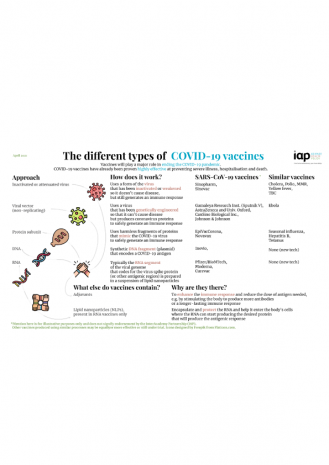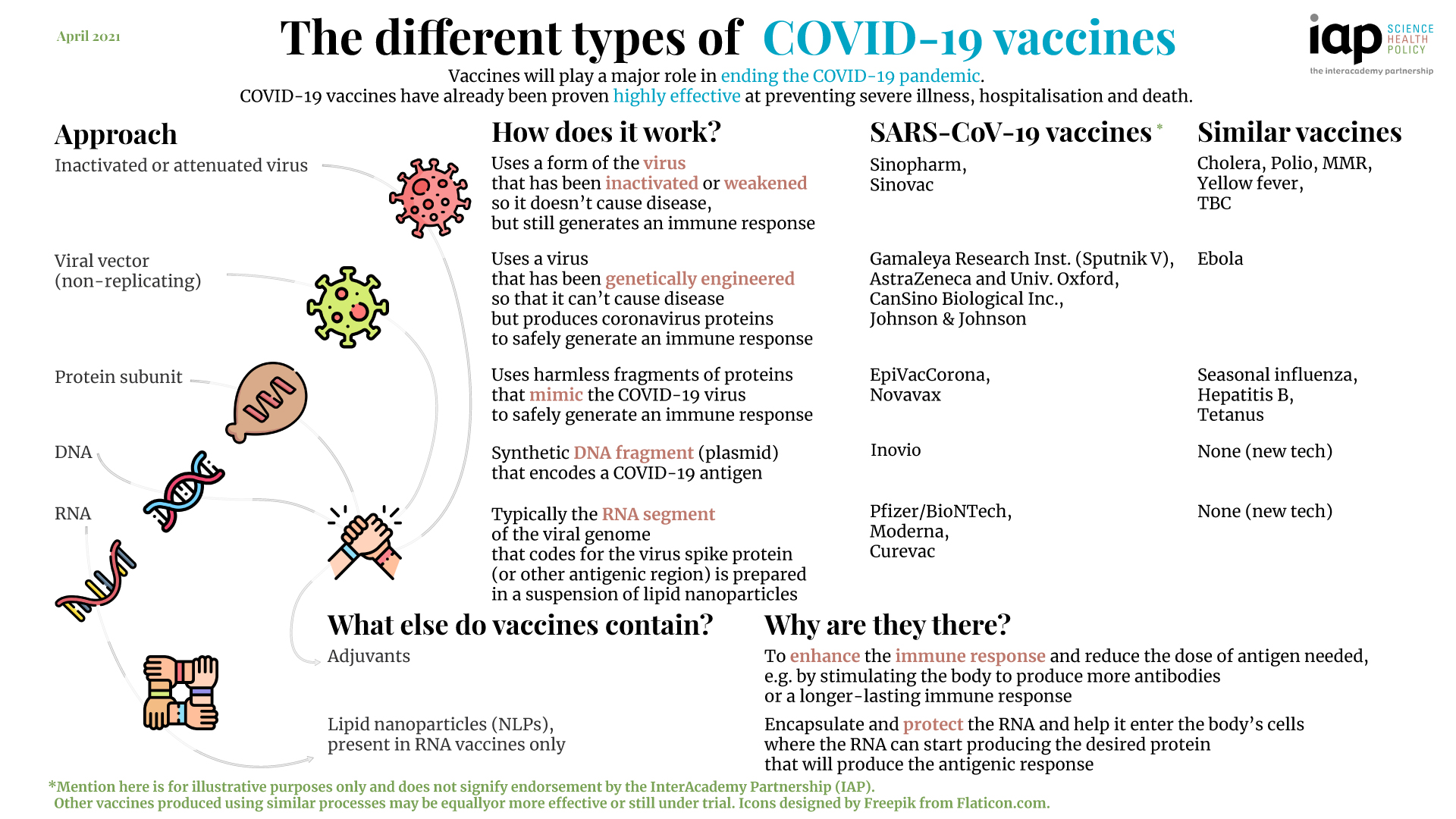How do COVID-19 vaccines work?
How many types of COVID-19 vaccines are there? Pfizer/BioNTech, Moderna, AstraZeneca, Johnson & Johnson, Sinovac and Sputnik V are just a few of the COVID-19 vaccines already developed and approved for use against the SARS-CoV-2 virus. This is why the InterAcademy Partnership (IAP) decided to celebrate World Immunization Week 2021 by releasing a new infographic and shed some light on the different types of COVID-19 vaccines, how they are developed, and how they work.
Vaccines will play a major role in ending the COVID-19 pandemic. COVID-19 vaccines have already been proven highly effective at preventing severe illness, hospitalisation and death.
COVID-19 vaccine types infographic
Click on the image below to see the infographic in full size.
Here you can download the infographic on different types of COVID-19 vaccines as a PDF or as a high-resolution jpeg; the infographic is available in French here: Les différents types de vaccins COVID-19.
Types of COVID-19 Vaccines
Inactivated or attenuated virus
This type of COVID-19 vaccine uses a form of the virus that has been inactivated or weakened so it doesn’t cause disease,but still generates an immune response.
COVID-19 vaccines: Sinopharm,Sinovac
Viral vector (non-replicating)
This type of COVID-19 vaccine uses a virus that has been genetically engineered so that it can’t cause disease but produces coronavirus proteins to safely generate an immune response.
COVID-19 vaccines: Gamaleya Research Inst. (Sputnik V), AstraZeneca and Univ. Oxford, CanSino Biological Inc., Johnson & Johnson
Protein subunit
This type of COVID-19 vaccine uses harmless fragments of proteins that mimic the COVID-19 virus to safely generate an immune response.
COVID-19 vaccines: EpiVacCorona, Novavax
DNA
This type of COVID-19 vaccine uses synthetic DNA fragment (plasmid) that encodes a COVID-19 antigen
COVID-19 vaccine: Inovio
RNA
This type of COVID-19 vaccine typically uses the RNA segment of the viral genome that codes for the virus spike protein (or other antigenic region), prepared in a suspension of lipid nanoparticles
COVID-19 vaccines: Pfizer/BioNTech, Moderna, Curevac
What else do COVID-19 vaccines contain?
Lipid nanoparticles (NLPs) are present in RNA vaccines only. They encapsulate and protect the RNA and help it enter the body’s cells where the RNA can start producing the desired protein that will produce the antigenic response.
The other types of COVID-19 vaccines contain adjuvants that enhance the immune response and reduce the dose of antigen needed, e.g. by stimulating the body to produce more antibodies or a longer-lasting immune response.


